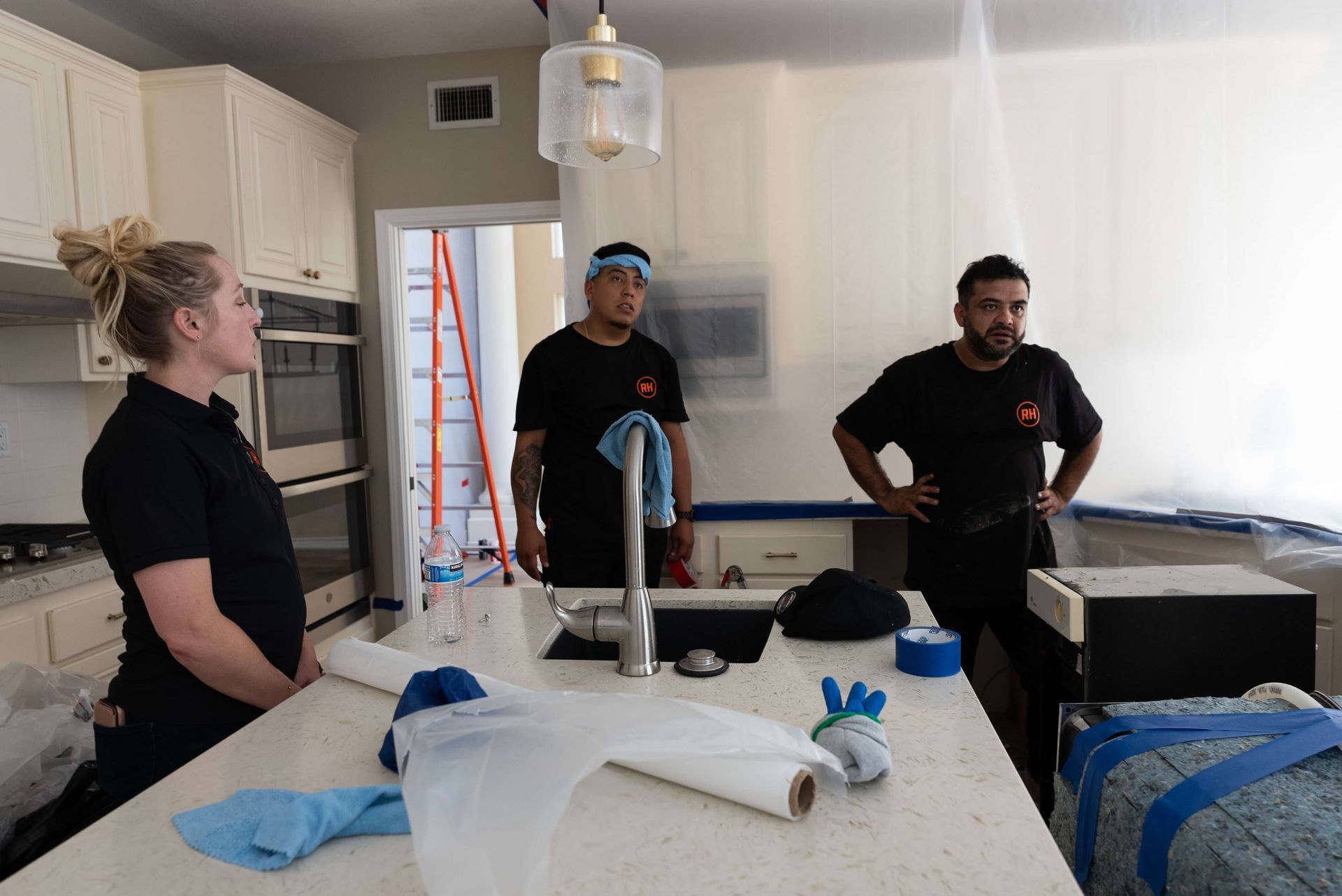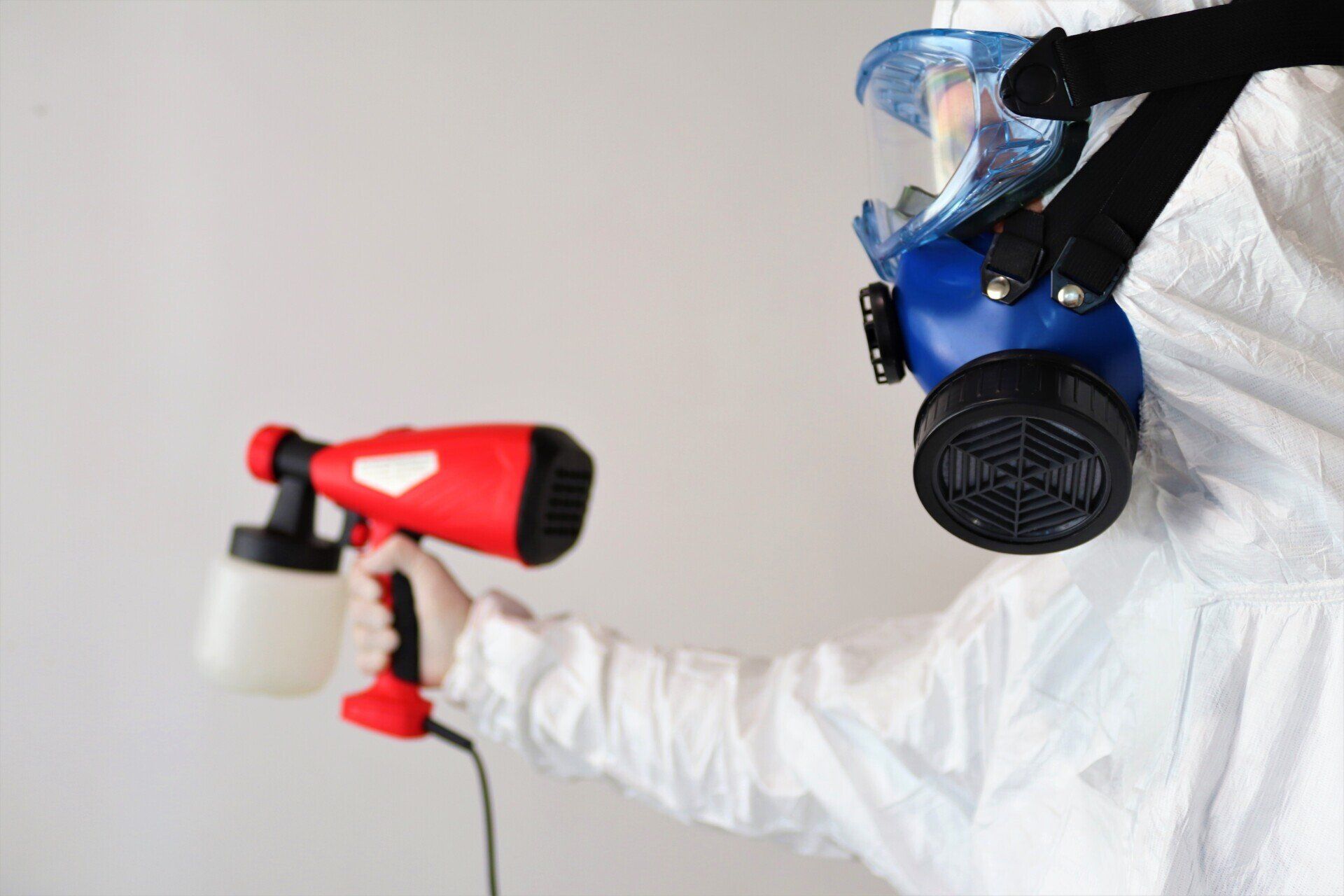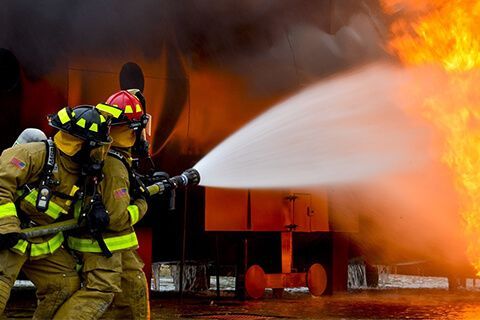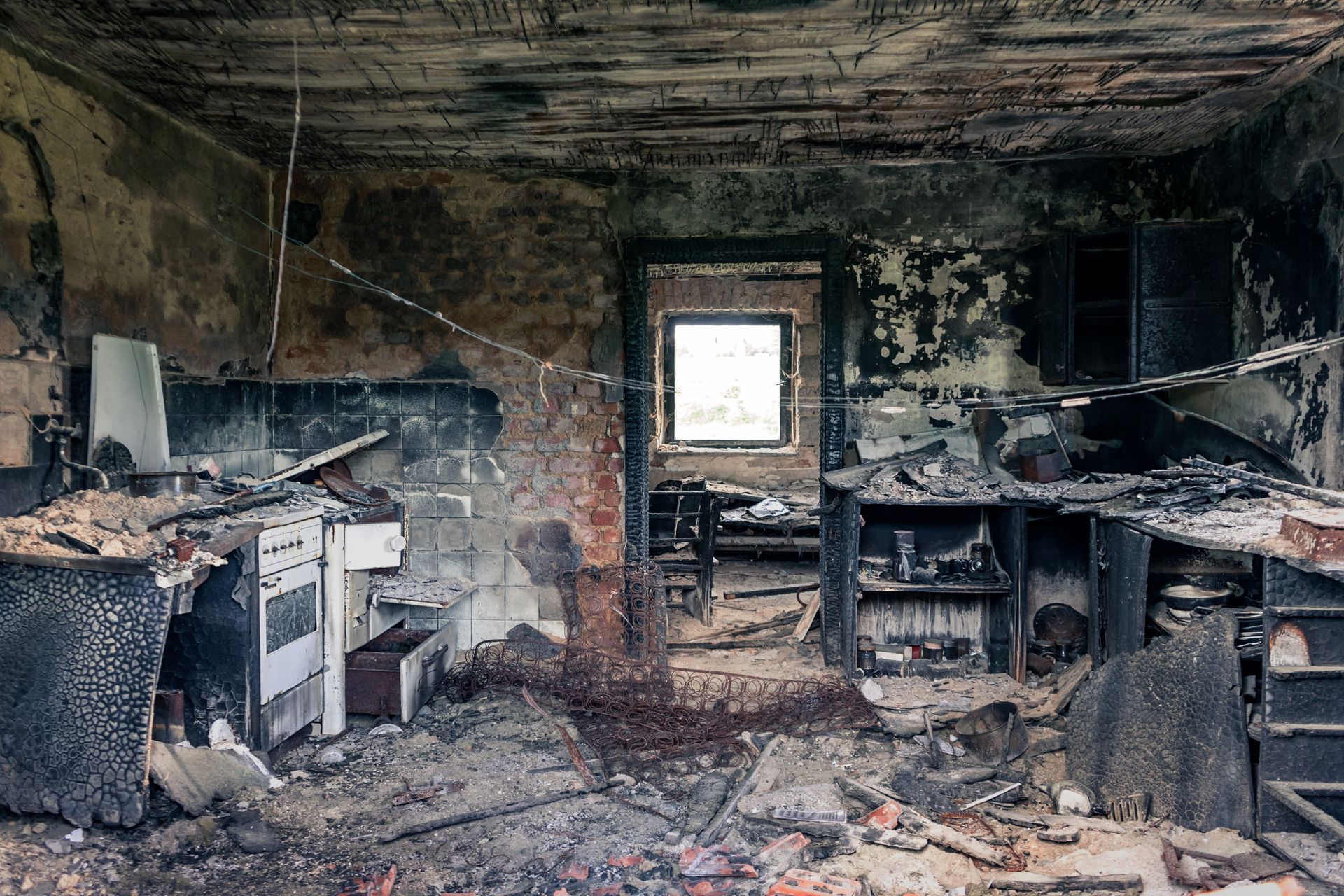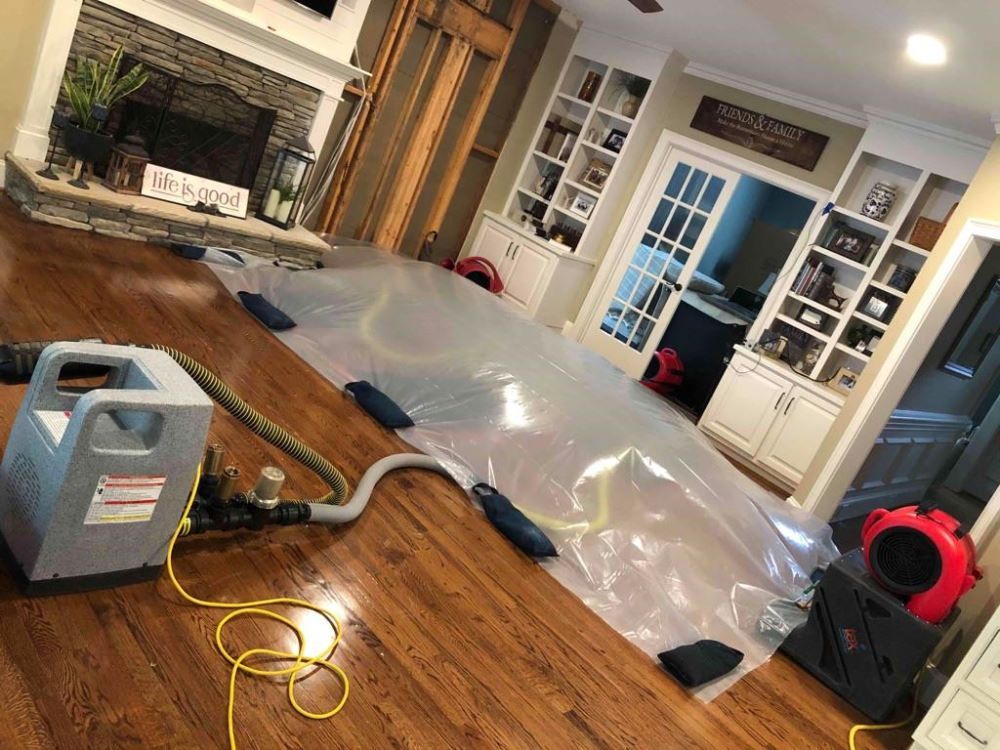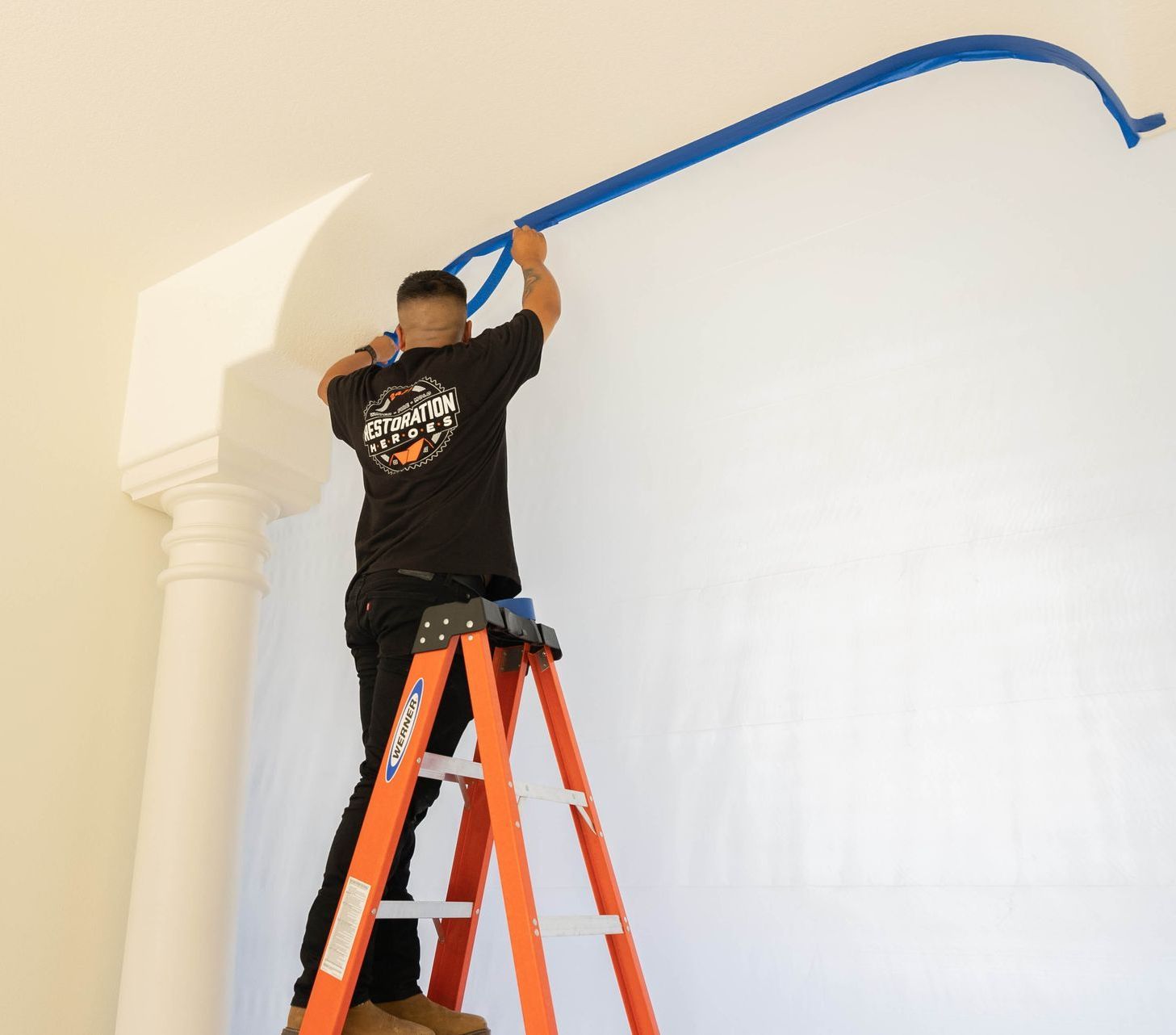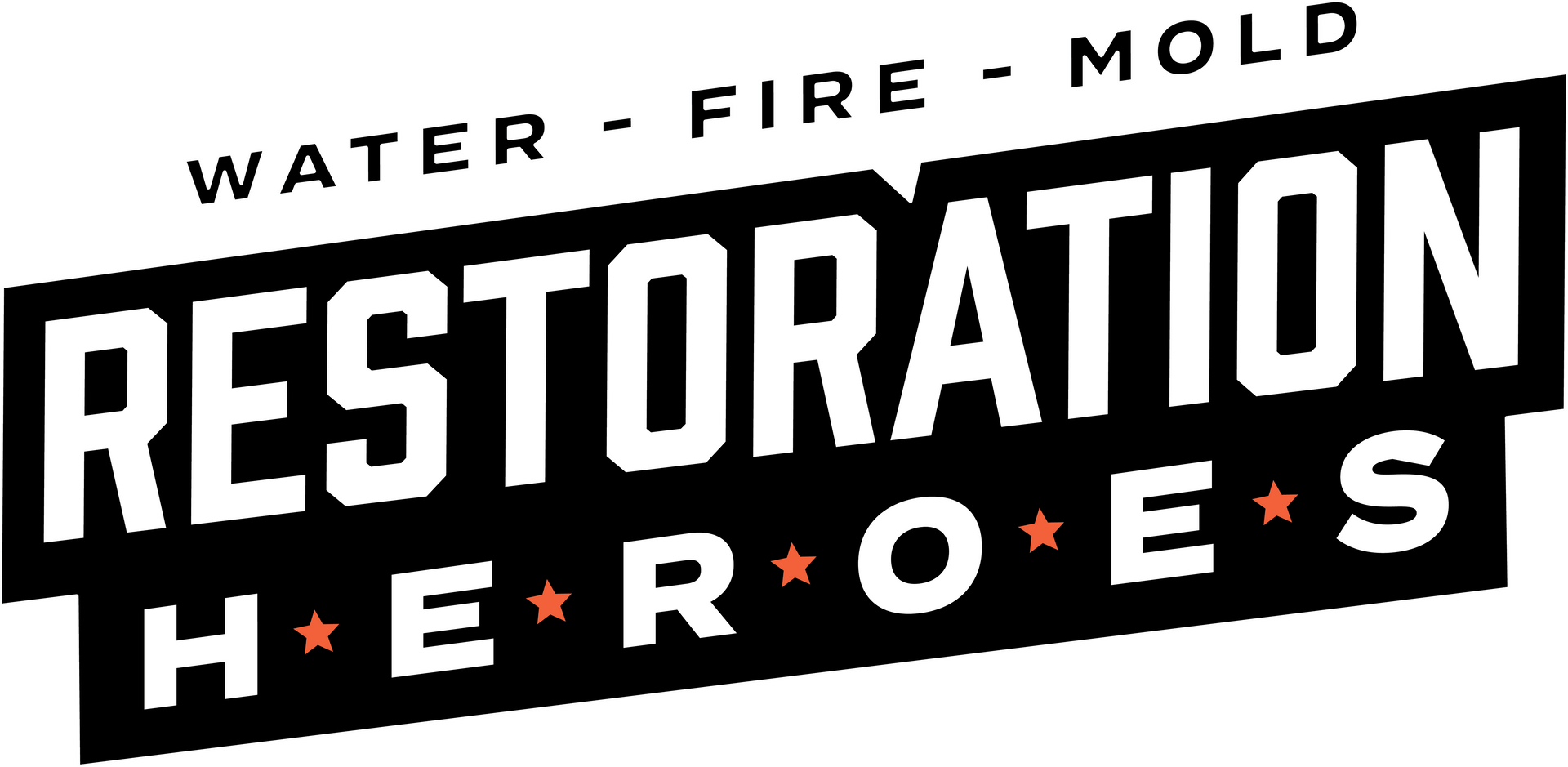
- SERVING ALL OF ORANGE COUNTY, CA
- 24/7 EMERGENCY RESPONSE
GIVE US A CALL
The Advantages of Quick Water Damage Response
Advantages of Quick Response Water Damage Action: Why Speed Matters
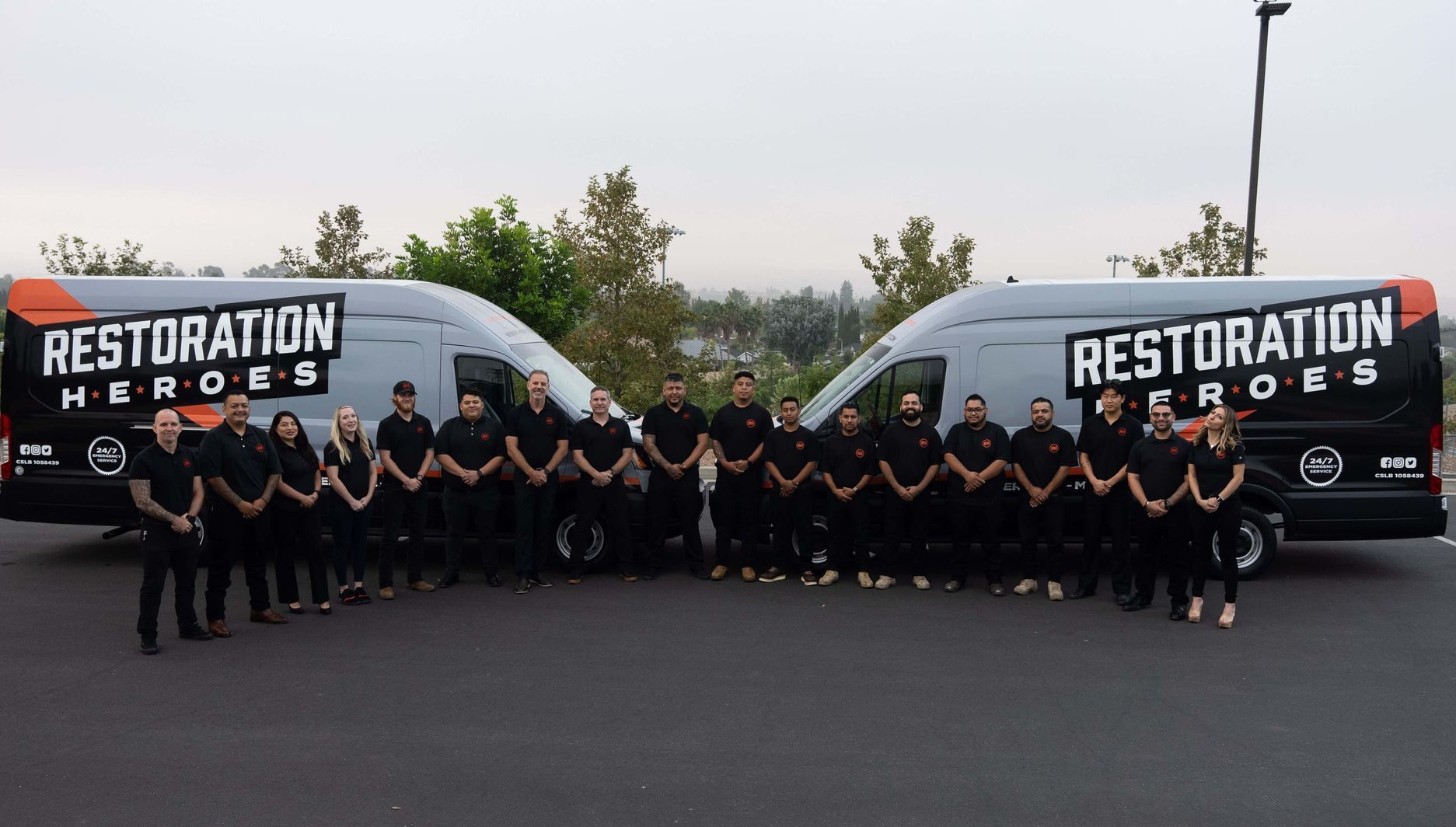
Imagine waking up one morning to find your basement flooded due to a burst pipe. Water damage can be a homeowner's worst nightmare, but it doesn't have to be. The key to mitigating water damage lies in a quick response and immediate action. How quickly you respond can mean the difference between a minor annoyance and a major, costly overhaul. In this article, we will discuss the importance of quick response water restoration, whether water damage is easy to fix, if water damage can dry out quickly, and the advantages of a fast response and efficient water removal.
Understanding the Nature of Water Damage
Water damage can occur in a myriad of ways, both naturally and due to household mishaps. Weather-related events such as floods, storms, and hurricanes are often to blame, wreaking havoc on homes unprepared for the onslaught of water. On the other hand, within the confines of your home, water damage can result from burst pipes, plumbing leaks, or appliance malfunctions. These events are often unpredictable and can strike at the most inconvenient times.
Crucially, the damage begins as soon as water makes contact with materials. Water, by its very nature, is invasive and will seek out every crevice, every porous material to seep into. Materials like wood, drywall, and carpet are particularly susceptible as they tend to absorb water rapidly, leading to structural damage and potential mold growth. The ability of water to cause damage quickly and permeate various materials underscores the importance of quick response water restoration to halt the progress of water damage and initiate the drying-out process promptly.
Advantages of Quick Response to Water Damage
A rapid response to water damage not only minimizes structural harm but significantly reduces restoration costs and potential health risks. Delayed action can exacerbate the issue, leading to severe damage that is harder and more expensive to repair. Moreover, damp environments foster mold growth, which can pose severe health risks. Therefore, a quick response restoration is crucial to avert these threats and ensure a safe and healthy living environment.
Preventing Structural Damage
Delaying the address of water damage can significantly compromise a building's structural integrity. Moisture seeping into the foundation can weaken it over time, making the building unstable. Similarly, when water infiltrates walls, it can deteriorate the building materials, causing them to warp, swell, or rot. This weakens the walls, which are vital to the stability of the structure. Furthermore, water can eat away at flooring materials, especially those made of wood, causing them to soften and eventually decay. This can lead to unstable floors, presenting a safety hazard. Therefore, a quick response to water restoration is paramount in limiting property damage and ensuring the structural safety of your home.
Avoiding Mold Growth
Mold is a silent invader that thrives under specific conditions: darkness, moisture, and organic material. Post a water event, mold can begin to grow in as little as 24-48 hours, feeding off materials like wood and drywall that are often found in homes. Mold spores can cause a host of health problems, especially in individuals with respiratory conditions or allergies. Inhalation of these spores can lead to symptoms ranging from nasal stuffiness and throat irritation to more severe reactions like shortness of breath. In some cases, mold can even lead to the development of asthma. Consequently, a fast response to water damage is essential to protect your health and prevent the conditions that encourage mold growth.
Saving Valuable Possessions
Water damage can wreak havoc on your valuable possessions, including furniture, electronics, and personal documents. Immediate action can sometimes salvage these items, preventing the need for costly replacements. For instance, furniture made from porous materials like fabric and wood can absorb water quickly, leading to discoloration, swelling, and warping. Electronics exposed to water are at risk of short-circuiting or even permanent damage. Water-soaked documents, photographs, and books can become unreadable or lose their structural integrity. However, swift and efficient water removal following a quick response restoration can help salvage these possessions, mitigating the damage before it becomes irreversible. Therefore, the importance of a fast response to water damage extends beyond structural considerations, playing a crucial role in preserving your valuable personal items.
Reducing Costs
Delaying water damage response can result in significantly higher costs due to prolonged exposure and subsequent damage. Immediate restoration efforts are generally less costly as they primarily involve water extraction, drying, and minor repair work. However, a delayed response can lead to extensive structural damage, compelling homeowners to undertake costly renovations or replacements. Furthermore, precious personal possessions may be irreparable or expensive to replace. Additionally, the growth of mold may necessitate professional mold remediation services, adding to the overall cost. Therefore, a quicker response to water damage is not just beneficial to the structural integrity of your home or the preservation of your valuables but is also much more cost-effective in the long run.
Minimizing Health Risks
Prolonged standing water can become a breeding ground for various harmful bacteria, viruses, and other pathogens. These microorganisms can pose serious health risks, leading to gastrointestinal illnesses, respiratory infections, or even more severe diseases like Hepatitis A. Especially dangerous is the risk of Legionnaire's disease, a severe form of pneumonia caused by Legionella bacteria often found in stagnant water. Mold, as previously discussed, can also lead to a multitude of health issues, particularly respiratory problems. Thus, it is paramount to respond fast to water damage, ensuring water removal and drying are initiated as quickly as possible to prevent the growth of these harmful pathogens and protect occupant health.
Essential Steps in Quick Water Damage Response
Addressing water damage requires a systematic and thorough approach to mitigate any adverse effects. Several critical steps need to be taken to ensure quick response and water restoration success. A comprehensive, efficient strategy will not only help resolve water damage quickly but also reduce potential health risks and costs.
Immediate Assessment
Accurate, immediate assessment is the first crucial step in quick response water restoration. This involves identifying the source of the water damage and comprehensively assessing the extent and severity of the damage. Professionals employ sophisticated tools such as moisture meters and infrared cameras to precisely locate areas of moisture that may not be visible to the naked eye. Moisture meters measure the degree of moisture in different materials, while infrared cameras detect temperature variations, revealing wet areas. These tools help ensure no area is overlooked, allowing for a comprehensive and effective restoration process. The quicker this assessment is made, the sooner the restoration can begin, preventing further damage and beginning the journey towards recovery.
Water Removal
The process of water removal, or extraction, is a crucial element in quick response water restoration. Specialized industrial-grade pumps and vacuums are employed to remove standing water and saturated materials. These efficient tools are designed to rapidly extract large amounts of water, significantly hastening the drying process. It's important to note that thorough water extraction is vital. Any lingering moisture can lead to secondary damage, such as mold growth or structural instability. Thus, professionals ensure all traces of water are meticulously removed, leaving no room for future complications. This rigorous approach is essential to swiftly mitigate the impacts of water damage, underscoring the importance of a quick and comprehensive response.
Drying and Dehumidifying
After water removal, the next crucial step is drying and dehumidifying the area. Professionals use industrial-strength air movers and dehumidifiers to evaporate any remaining moisture, even in hard-to-reach or hidden pockets. Air movers create airflow across walls, carpets, pads, and furniture, accelerating the evaporation of moisture. Simultaneously, dehumidifiers extract water vapor from the air, preventing secondary water damage like swelling and warping of floors, walls, and furniture. It's vital to ensure all hidden moisture pockets are addressed, as overlooking them can lead to long-term damage and mold growth. Thus, the use of advanced drying and dehumidifying equipment is integral to a comprehensive quick response water restoration approach.
Cleaning and Sanitizing
Cleaning and sanitizing the affected areas is a vital part of the quick response water restoration process. This step eliminates any potentially harmful pathogens and prevents the growth of mold. Professionals utilize EPA-approved disinfectants, antimicrobial treatments, and advanced cleaning techniques to sanitize the area thoroughly. They also use specialized equipment and processes to clean restorable items, ensuring they are safe to use again. This meticulous cleaning and sanitizing process not only prevents health risks but also helps restore the property to its pre-damage condition. Therefore, it's crucial to understand that water damage is not just about water removal and drying but also about ensuring a safe, clean, and healthy environment post-restoration.
Restoration
Restoration is the final and essential phase in the quick response water restoration process. This phase involves making necessary structural repairs to the property, like replacing drywall, installing new carpet, or even reconstructing various areas of the property. Quick response restoration professionals are skilled in handling these tasks efficiently, ensuring the property is brought back to its pre-water damage condition. This step is crucial in making spaces habitable and comfortable again, turning a house back into a home. It's the culmination of all the previous steps, each crucial to the overall restoration process. After the restoration phase, you can rest assured that the damage has been dealt with thoroughly and your property is ready for your return.
Don't Wait: Restore and Reclaim Your Space Now!
At Restoration Heroes, we specialize in quick-response water restoration. We understand the urgency, and we're prepared to respond fast to minimize your water damage. We incorporate state-of-the-art equipment and proven strategies for efficient water removal, drying, cleaning, and restoration. Our professional team is ready to handle your water damage, no matter how extensive or complex it may appear. When disaster strikes, don't delay. Contact us immediately at Restoration Heroes - your trusted partner in rapid water damage recovery. Don't let water damage soak up your peace of mind. Act now, restore, and reclaim your space with our help!
CONTACT US 24/7 FOR RESTORATION HELP
Works with all major insurance carriers
Proven & personalized service
Professional, high-quality workmanship
24/7 emergency service
90 Minute On-Site Response Time
IICRC & background checked technicians
OR GIVE US A CALL
Don’t wait on water damage repairs, as it will only complicate the matter and invite more cost and frustration. Restoration Heroes are available 24/7 to help Irvine residents and property owners return their property back to its original state – safely, securely, promptly!
Restoration Heroes is a 24/7 emergency restoration company based in Irvine, CA, and services all of Orange County, CA. We are experienced in water damage restoration, fire damage restoration, mold damage remediation, biohazard cleanup, storm damage cleanup, and more. Our industry experts can advise you on your options, offer guidance, and create the absolute best case outcome for your situation.
QUICK LINKS
All Rights Reserved | Restoration Heroes


